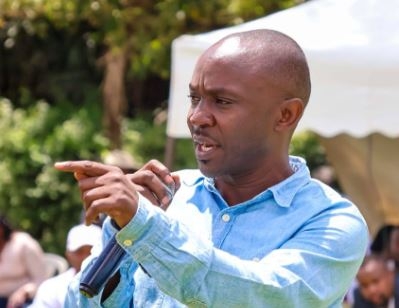The late philanthropist and volunteer Hasmukh Patel ‘Hasu’ whose body was cremated on Sunday afternoon hours at the famous Hindu crematorium opposite Tononoka Children’s Court was a beacon of hope and a great inspiration to many.
Despite his billionaire status, the fallen hero was and will forever be remembered as a man of the people just like Chinua Achebe.
As family, friends and Kenyans continue mourning his demise, there are lessons to draw home, especially for Kenya's class of the rich and those blessed to have plenty overflowing their jars and portions of life.
For starters, philanthropy is the practice of giving money, time, and other valuable resources to causes like education, healthcare, the environment, and arts and culture.
From Patel, we can draw the lines and chat the way forward on how we can continue his hard work.
This is a man who in Mombasa alone, is celebrated for helping thousands of People with Disability through his charitable work.
He has also helped feed people through his own personal feeding program and touched the lives of over 10,000 learners who have reaped big from his scholarship program targeting needy students.
I understand that many Kenyans respond in a big way through what has now come to be known as 'crisis philanthropy', where they donate materials in kind, money and even land.
There has never been any doubt that we have Kenyans who have the heart and desire to help but we have some who don't know how to go about it.
The truth is that many of the Kenyan rich are willing to help where structures and mechanisms for accountability exist and that is the reality.
To explain it better for the rich class, it is well documented that mega-philanthropists use personal wealth to stimulate and accelerate innovation and to seek policy influence.
At the same time, major multinational firms draw on expertise in applying enterprise-based and competency-led approaches to social change.
One of the best ways the rich can get down to the community and help the poor is through charity. In Kenya, we have seen rich individuals and organizations make charitable donations to organizations that provide financial assistance to low-income individuals and families.
Working through organisations that have structures of accountability gives reassurance to the main sponsor and has at his disposal, people to ask any oversight questions.
Today, the world and Kenya in particular is facing many challenges. Poverty, climate change, failing healthcare systems, education inadequacies and what have you.
While progress can feel like a distant dream, individuals, communities, and organizations must work together to address deeply-rooted issues. This is what Patel taught us with his work.
While philanthropists are usually seen as very wealthy individuals, anyone who consistently donates resources to social causes is a philanthropist. So you don't have to be rich to be a philanthropist but you need to be rich at heart.
But to make this more workable, Kenya has to learn from the best globally by setting up something like a National Philanthropic Trust, which will operate like a public charity to provide philanthropic expertise, and define charity and regulations.
The charitable actions here could include donating books to a school library while to make it philanthropy, one can focus on funding a new library.
Patel also taught us about Education philanthropy through his scholarship programs. Education, and in Kenya to be particular has been a favorite cause for many philanthropists.
Countless schools, universities, and college departments exist because of philanthropic gifts, while charitable foundations often focus on improving education around the world.
We have learnt from the best philanthropists like MacKenzie Scott an American novelist, and ex-wife of Amazon founder Jeff Bezos, who in 2002 gave millions of dollars to schools with no conditions, meaning schools were free to use the money how they saw fit.
In one instance, a district in her country decided to create the Get More Opportunities Fund, which would fund projects like college visits, teacher proposals, and school facility upgrades. Scott is just one of many philanthropists who participated in education philanthropy.
The same can be done in Kenya and those ready and willing can also explore Healthcare philanthropy because we all agree that healthcare is too much critical.
Medical philanthropy for those interested focuses on donating money, time, and resources to support healthcare causes, like research, hospital wings, programs, new technology, and much more.
We can as a country, acknowledge the importance of philanthropy and create laws applicable to protect it.
One of the markable achievement that the late did on matters of environment was the recreation of the Kibarani dumpsite.
The place was bad and filthy to the ocean, causing several diseases to the people around. It brought a lot of distraction especially to the tourism sector and traders.
But currently the place is alluring and a relaxing public park all thanks to what Patel did.
This is a man who cares not just about the people but the environment and humanity in general. Indeed, there is a lot we can learn and cherish in his philanthropy.
Elcana Jacob is a criminologist, security expert and communication consultant















